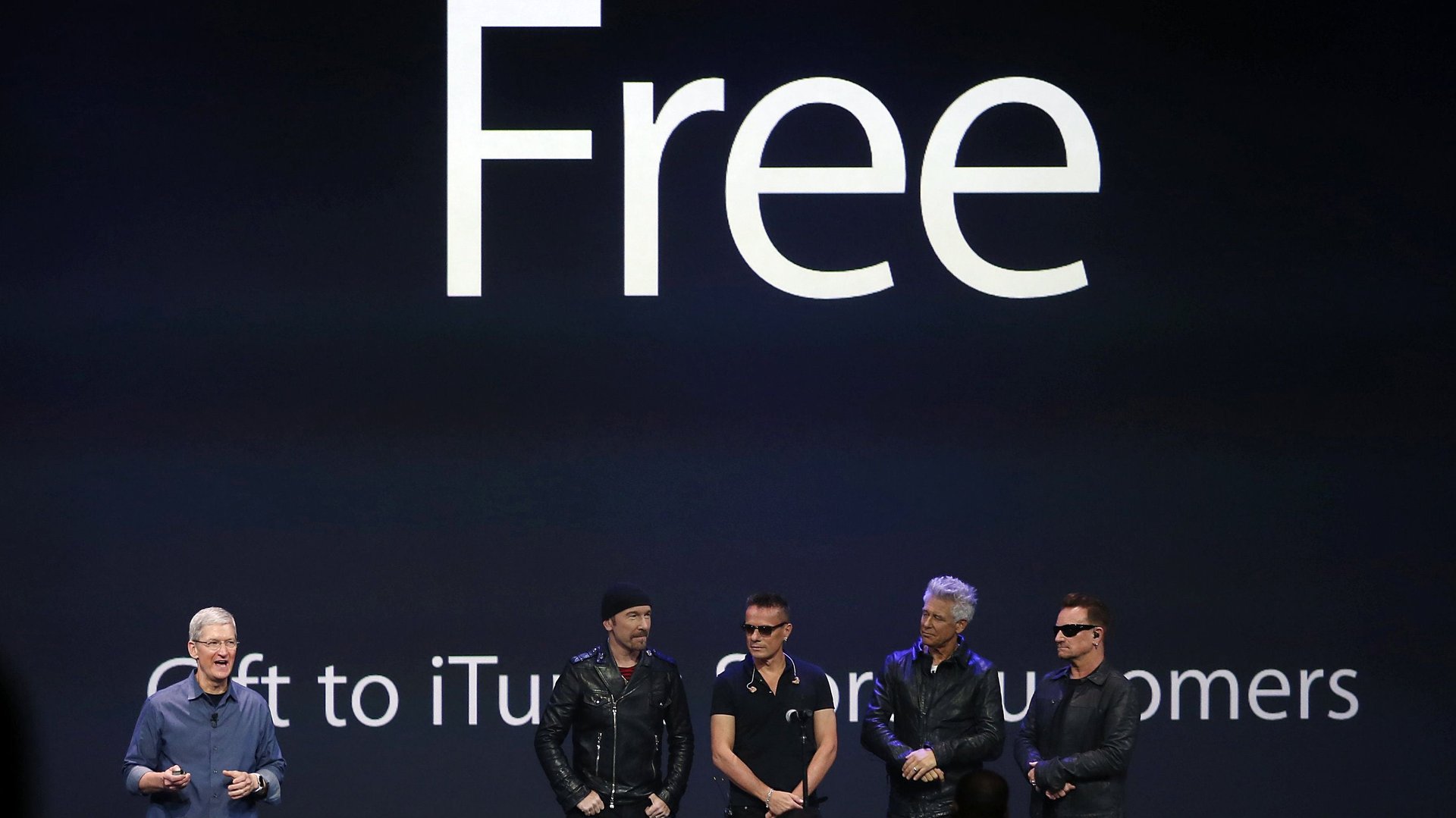U2’s Apple deal shows why musicians don’t sell music anymore
Apple often features Irish rock band U2 when it wants to demonstrate that the music business has changed.


Apple often features Irish rock band U2 when it wants to demonstrate that the music business has changed.
Back in 2004, when the iPod was king, U2 had a special edition device along with “the world’s first digital box set” on iTunes. In 2007, just after Apple made its music downloads DRM-free, it offered the exclusive chance to buy U2’s latest single—a high-water mark for the iTunes store before streaming music services like Spotify appeared on the scene.
Now Apple has changed its tune yet again, offering the entire U2 album “Songs of Innocence” for free to 500 million iTunes users. CEO Tim Cook called it “the biggest release in the history of music.” It’s also an acknowledgment that the old pay-per-song model is over, just like the “buy a physical album to get the hit single” business that it helped destroy. As entertainment writer Roger Friedman noted:
Album sales have vanished. The most U2 would sell in its first week, if they were very very lucky, would between 300,000 and 500,000 copies. And that’s being extremely optimistic. It’s not worth the price of printing them up. Just give it away, and make the money through publishing, which the group owns, and concert tours.
Under the Apple deal, U2 will still get paid—“We’re not going in for free music around here,” Bono joked from the Apple stage yesterday—but not by music fans. Instead, Apple is licensing the band’s music as a sweetener to the inhabitants of Apple’s musical ecosystem, along with the right to use the album’s lead single in its ad campaign.
Coming on the heels of Apple’s recent purchase of Beats by Dre and the hiring of legendary music executive Jimmy Iovine, the U2 deal feels like a sign of things to come.
Internet entrepreneur Jason Calacanis hazarded a guess that Apple is paying the band up to $30 million in exchange for offering the album free to its hundreds of millions of users. “That’s probably what the Beats by Dre model is all about: Apple as a label,” he wrote in his email newsletter. “Everyone wins: free music for us, another selling point for Apple & artists get absurd exposure through sampling.”
What Apple bought from U2 was a promotional tool for its new offerings—whether it’s the new iPhone, the Apple Watch, or whatever Spotify competitor emerges from the Beats acquisition. Calcanis concluded that “Apple saved the album today,” but the deal also illustrates why music, in the form of singles or albums, is no longer a viable product to sell on its own. That’s been true since the rise of iTunes, when Apple subsidized downloads to encourage the purchase of its devices, but now the subsidy is all that remains.